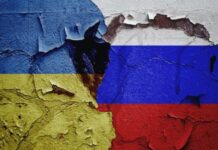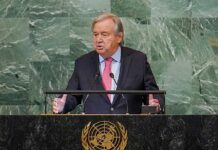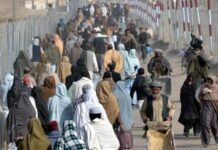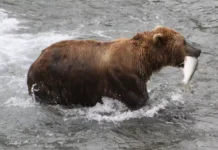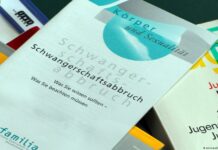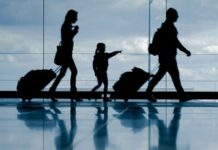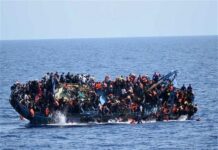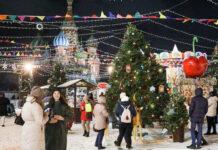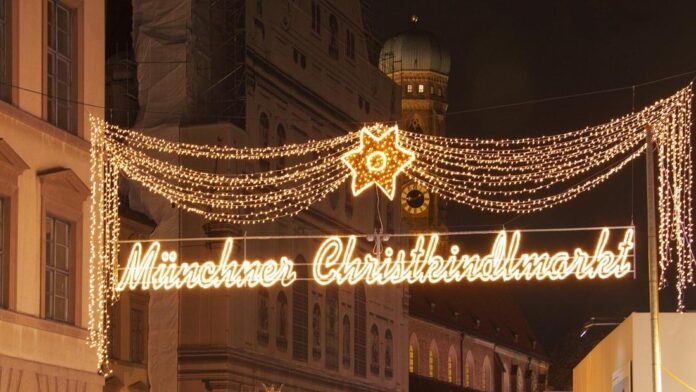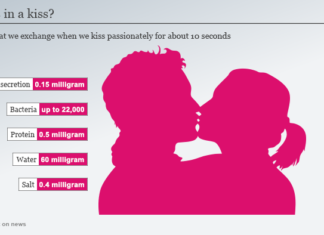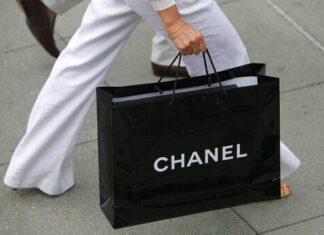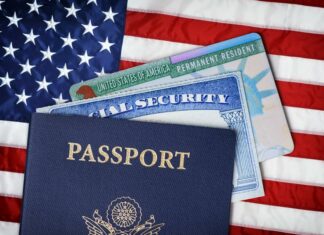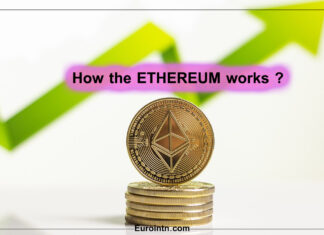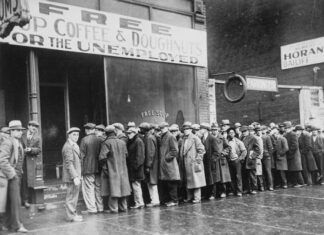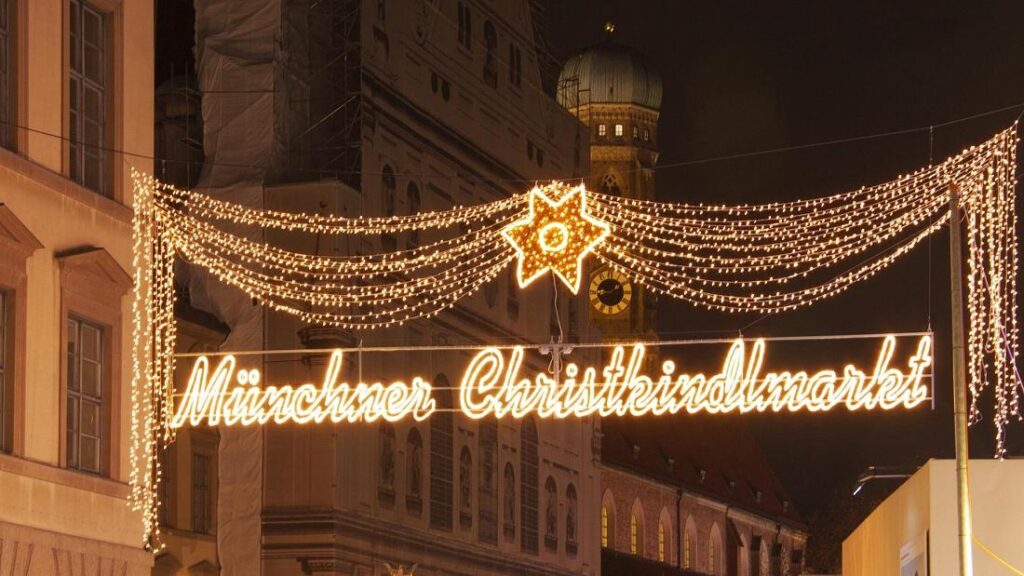
Munich’s famous Christmas market has been cancelled again this year after a spike in COVID-19 cases.
The market is one of the oldest in the country, dating back to the 14th century, and is usually held in front of the city’s town hall in Marienplatz – it was due to take place from 22 November to 9 January 2022.
The announcement comes after Munich also had to cancel its world-famous Oktoberfest celebrations earlier this year.
Munich’s Mayor has said that he made the decision to cancel the market after meeting with pandemic officers from the city’s hospitals who “unanimously warned” against holding it.
Mayor Dieter Reiter said that it was “bitter news” for residents and stallholders, “However, the extreme situation in our hospitals and exponentially rising infection rates leave me no other choice.”
“The Chistkindlmarkt would, of course, have been a nice pre-Christmas sign of normality. Unfortunately, despite the possibility of vaccinations, we are currently far from this normality, partly because not enough people have been vaccinated yet,” he added.
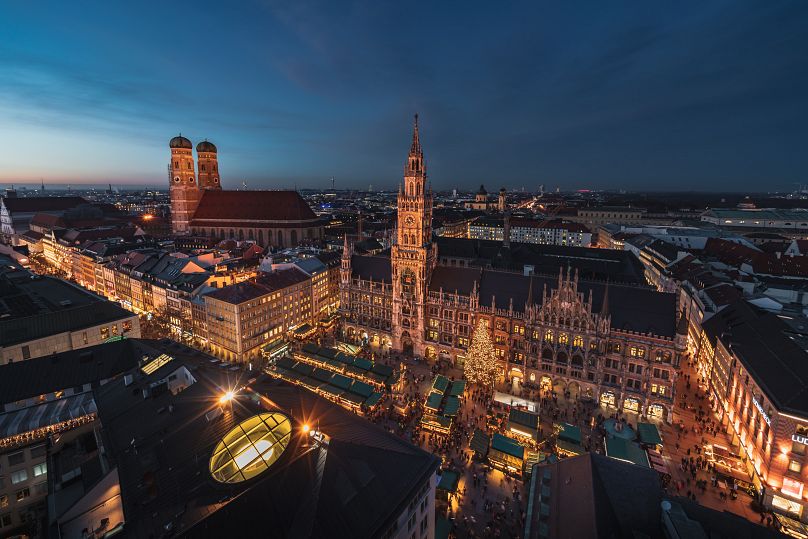
Munich is the first German city to announce that its Christmas market has been cancelled since COVID-19 cases started to rise in the country. No announcements have yet been made about other famous markets including Nürnberger Christkindlesmarkt in Bavaria.
But many organisers have said that they plan to go ahead with strict rules preventing the unvaccinated from attending. Others will require proof of vaccination, recovery or a negative test before allowing visitors to enter.
So which German Christmas markets are still going ahead and what COVID restrictions are in place to keep them safe?
Germany travel restrictions
Before you think about travelling to Germany to visit a Christmas market, here are the current restrictions:
- Connected to the EU Digital COVID Certificate (EUDCC), which allows restriction-free travel across all EU and EEA countries following proof of vaccination and a negative COVID test.
- Germany is operating a ‘green pass’ for entry into public spaces.
- Travellers entering the country need to fill out a digital registration form before they travel and must have proof of a negative COVID test.
- Arrivals from other “areas of variant of concern” are expected to head straight home to quarantine domestically for 14 days.
Christmas markets in Cologne
Cologne has a number of Christmas markets both big and small, each with a different theme. Those in the centre are beautifully decorated selling arts and crafts from all over Europe. In the city quarters – or ‘Veedel’ as they are called in Cologne – smaller markets offer culinary specialities and goods from local businesses.
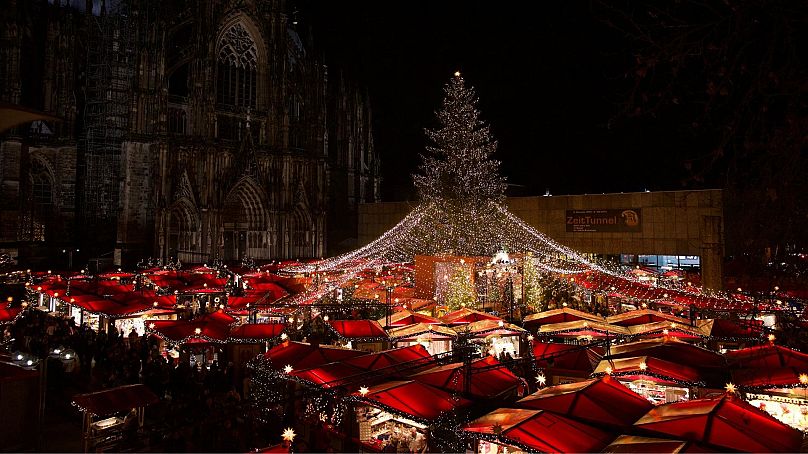
For access to the city’s Christmas markets, Germany’s 2G rule will be in place. This means that only those vaccinated or those who have recovered from the virus will be allowed to enter. Children up to the age of five are exempt from this rule.
Those between the ages of six and twelve, as well as people who can’t be vaccinated and have an appropriate certificate, will need a negative PCR test or antigen test. Mask wearing will also be recommended and mandatory at some of the city’s markets.
Christmas markets in Nuremberg
Nuremberg’s Christkindlesmarkt, or ‘Christ Child Market’, is one of the most popular in Germany. In 2019 the event attracted two million visitors. Located in the city’s Main Market Square, it has been taking place since the mid 16th century with the first recorded event in 1530.
The market is still due to take place but its famous opening ceremony will be happening online this year. You can find out more information about how to watch it here. It is usually led by a girl dressed as an angelic figure who reads a text that has been the same for around 50 years from the balcony of the Frauenkirche.
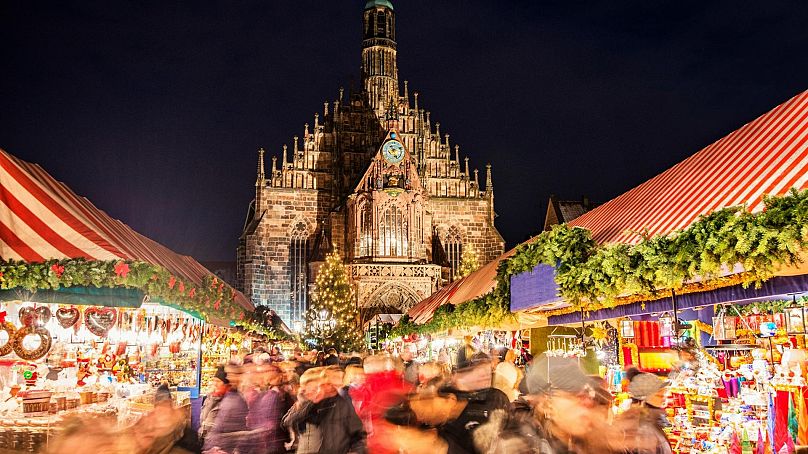
“Of course, I would also have liked the Nuremberg Christkind to be able to open its market in the traditional way from the balcony of the Frauenkirche,” says the city’s Mayor Marcus König.
“However, this is not possible for reasons of infection protection.”
Stalls will also be “decentralised”, creating enough space between them to prevent large crowds. Using different spaces across Nuremberg, the plan is to turn it into a “Christmas City”.
While most of these spaces will be free from restrictions, seven ‘gastro zones’ where traditional treats including mulled wine will be available will be under Germany’s 2G restrictions.
Christmas markets in Dresden
Dresden’s Stiezelmarkt is due to open on 22 November. It draws three million visitors every year and is officially the oldest market of its kind in the country.
It is home to many traditional stands, including the tallest Christmas pyramid in the world and l the largest nutcracker in the world too.
This year there will be no stage program and events such as the miners’ parade – a traditional procession held in places where ore was once smelted – will not take place to prevent large crowds.
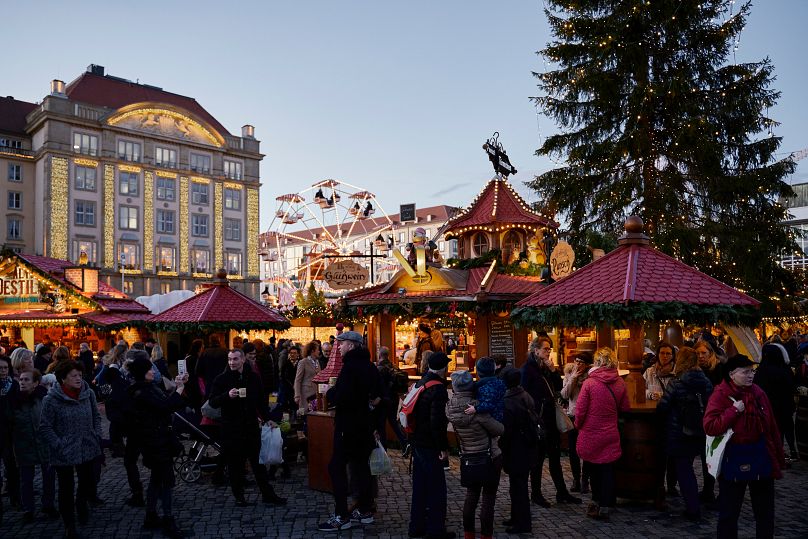
The city has also said that large markets will not be subject to 2G regulations because it requires them to be fenced off. Concerns about fire safety, security and costs mean they have decided to go ahead without these restrictions.
“The market organizers, whether municipal or private, have made enormous efforts to plan and organize Christmas markets under Corona conditions,” say Lord Mayor Dirk Hilbert and Lord Mayor Sven Schulze.
“Stands have been reduced, areas have been expanded and lounging areas have been set up.”
The state of Saxony, where Dresden is located, has said that markets can go ahead but there is still doubt as to whether it will happen. Local authorities are due to meet on 25 November and could still make a decision to cancel the event, so look out for announcements on the city’s website.



